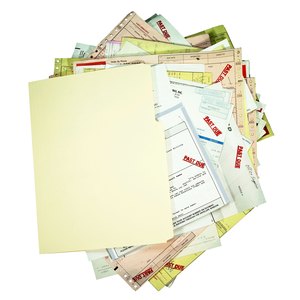
When you cosign a loan, you are agreeing to be financially responsible for another person's debt if that person should be unable to pay it. In most cases, the debt remains on the cosigner's credit report until it is paid in full, and the creditor can collect from the cosigner if the primary borrower stops making payments. However, cosigners can discharge their obligations in certain circumstances.
Cosigner Bankruptcy
In most cases, cosigners can discharge the debts they have cosigned through Chapter 7 bankruptcy. Cosigners can discharge this debt whether or not the account is currently delinquent. If the account is delinquent, the bankruptcy filing will stop the creditor from attempting to collect from the cosigner. However, if you are the primary borrower, the creditor can continue collection actions against you, since the bankruptcy protection applies only to the cosigner.
Debtor Bankruptcy
If you file Chapter 7 bankruptcy on a cosigned loan, you can usually discharge your obligation to pay it. However, your bankruptcy will not discharge your cosigner's obligation to pay the debt. In most cases, the creditor will begin collecting from the cosigner as soon as you file for bankruptcy protection, as the automatic stay enacted by the bankruptcy applies only to you.
Exceptions
Bankruptcy will not discharge certain types of cosigned debts, regardless of whether the primary borrower or the cosigner files for bankruptcy protection. For example, if someone cosigns a federal student loan for you, neither you nor your cosigner will be able to discharge the debt unless you can show that it is causing you undue hardship. Cosigned debts that the filer could have included in a previous bankruptcy filing also are exempt from discharge.
Considerations
If you are planning to file bankruptcy and you want to prevent your cosigner from assuming the obligation to pay a debt, you can do so by either reaffirming the debt before your discharge, continuing to make the payments yourself or paying it in full. Although cosigned federal student loans are exempt from discharge in Chapter 7 bankruptcy, both cosigners and primary borrowers can typically discharge a private student loan.
References
- NOLO: Will Your Cosigner be Liable for Debt if You File for Bankruptcy?
- Allmand Law: If My Co-Signer Files Bankruptcy Does their Filing Affect Me?
- Congress.gov. "HR 748—CARES Act." Sec. 1113. Accessed May 20, 2020.
- U.S. Courts. "Discharge in Bankruptcy—Bankruptcy Basics." Accessed May 20, 2020.
- Cornell Law School Legal Information Institute. " 11 U.S. Code § 727. Discharge." Accessed May 20, 2020.
Writer Bio
Amanda McMullen is a freelancer who has been writing professionally since 2010. She holds a bachelor's degree in mathematics and statistics and a second bachelor's degree in integrated mathematics education.

